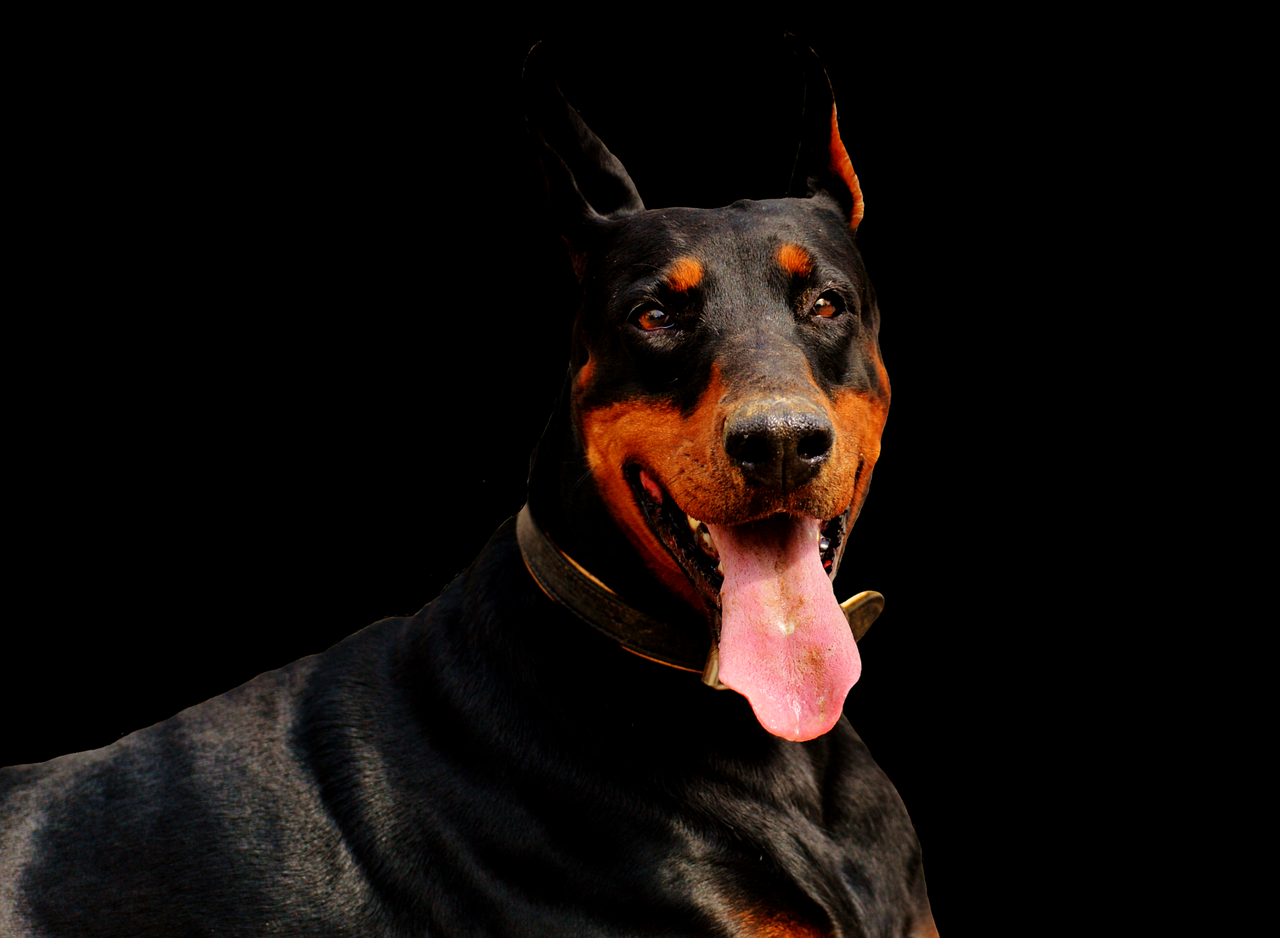Dobermans, known for their sleek coats, athletic build, and vigilant nature, is an impressive dog breed. Although generally robust, Dobermans are susceptible to certain breed-specific health issues. Understanding these health problems and their early warning signs can help ensure your Doberman leads a healthy and happy life.

-
Dilated Cardiomyopathy (DCM)
DCM is a heart condition common in Dobermans, characterized by an enlarged heart and weakened cardiac muscles. Early signs can be subtle, such as lethargy, decreased appetite, or fainting. As the disease progresses, symptoms might include coughing, abdominal swelling, or rapid breathing. Regular veterinary cardiac screenings can help identify DCM at an early stage, improving the potential for effective management.
-
Von Willebrand’s Disease (vWD)
vWD is a blood clotting disorder often found in Dobermans. Affected dogs may bleed excessively from minor wounds, have frequent nosebleeds, or display signs of anemia like pale gums or lethargy. If your Doberman displays any of these symptoms, immediate veterinary attention is crucial. Genetic testing is available to identify carriers of vWD.
-
Hip Dysplasia
Hip dysplasia is a hereditary condition characterized by an improperly formed hip joint. This can lead to pain, lameness, or difficulty moving. Over time, it can result in arthritis. Signs to look out for include decreased activity, difficulty standing up, or reluctance to climb stairs or jump. Regular veterinary checks can identify hip dysplasia early, and treatment can range from medication to surgery.
-
Hypothyroidism
Hypothyroidism, where the thyroid gland doesn’t produce enough thyroid hormone, can lead to a variety of symptoms in Dobermans, including weight gain, lethargy, hair loss, or dry skin. If your Doberman exhibits any of these symptoms, a simple blood test can confirm hypothyroidism. Treatment usually involves a daily thyroid medication.
-
Gastric Dilatation-Volvulus (GDV)
Also known as bloat, GDV is a potentially life-threatening condition common in large, deep-chested breeds like Dobermans. GDV happens when the stomach fills with gas and twists, preventing the gas from escaping. Symptoms include a bloated or distended abdomen, unsuccessful attempts to vomit, excessive drooling, and restlessness. GDV is a veterinary emergency requiring immediate intervention.
In conclusion, while Dobermans are generally a healthy breed, being aware of these common health issues and their signs can enable early detection and treatment. Regular veterinary check-ups are crucial, as are a balanced diet and regular exercise. If you notice any changes in your Doberman’s behavior or physical condition, seek veterinary advice immediately. With appropriate care and attention, your Doberman can enjoy a long, healthy, and active life.
 Toledo, United States.
Toledo, United States.